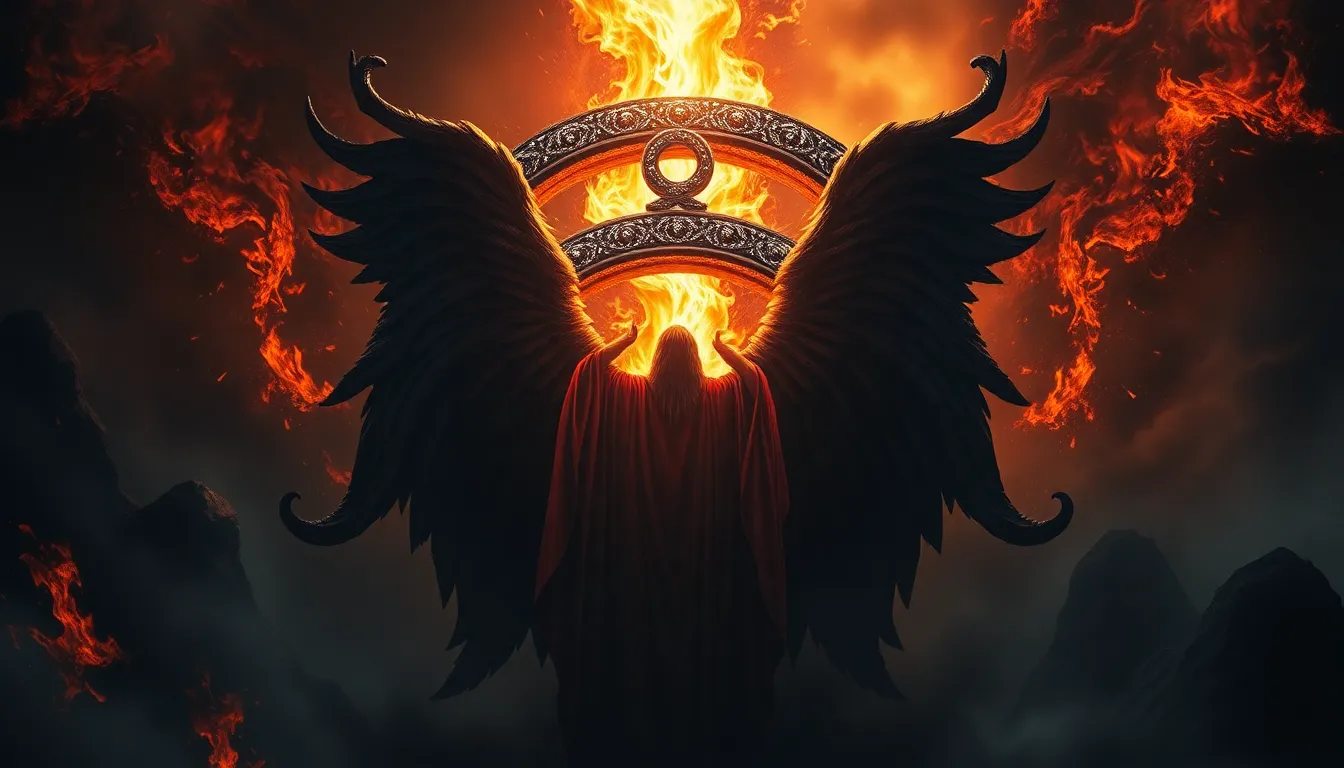The Ring of the Nibelungen: Power and Betrayal in Myth
Introduction to the Ring of the Nibelungen
The Ring of the Nibelungen is a captivating myth that has resonated through centuries, encapsulating profound themes of power, betrayal, and fate. Originating from ancient Germanic folklore and later immortalized in the medieval epic poem, the Nibelungenlied, this tale provides a rich narrative that explores the consequences of ambition and the destructive nature of desire. The story revolves around a cursed ring, a symbol of ultimate power that brings ruin to its bearers, revealing the dark side of human ambition.
Historical Context and Origins of the Myth
The Nibelungenlied, composed in the early 13th century, serves as the primary source for the Ring of the Nibelungen myth. This epic poem tells the story of heroes, gods, and mythical creatures, drawing heavily from earlier Norse sagas and Germanic traditions. It reflects the socio-political climate of the time, showcasing the values and struggles of the societies that embraced it.
Norse mythology significantly influences the narrative, with characters and motifs echoing tales from the Edda and other sources. The intertwining of these traditions illustrates the cultural milieu of medieval Europe, where oral storytelling was paramount, and myths served to explain the human condition and societal values.
The Ring as a Symbol of Power
At the heart of the myth lies the Ring, forged by the dwarf Alberich, which grants its owner immense wealth and power. However, this power comes at a great cost. The Ring is cursed, leading to treachery and death for those who seek to possess it. This duality of power—its allure and its destructive potential—forms a central theme of the narrative.
- Magical Properties: The Ring possesses the ability to bestow great fortune, making it a coveted object among characters.
- Corruption of Possessors: As characters acquire the Ring, they become increasingly consumed by greed and ambition, leading to their downfall.
Key Characters and Their Motivations
The myth is populated by a cast of complex characters, each driven by their desires and ambitions. Key figures include:
- Siegfried: The heroic protagonist who slays the dragon Fafnir and acquires the Ring, representing the archetype of the tragic hero.
- Brunnhilde: A valkyrie who embodies both strength and vulnerability, her love for Siegfried ultimately leads to betrayal.
- Hagen: The antagonist whose cunning and ambition drive much of the conflict, showcasing the darker aspects of desire.
The interplay of these characters reveals the intricate web of relationships defined by ambition, love, and betrayal, ultimately leading to tragic outcomes.
The Role of Fate and Destiny in the Narrative
Fate is a pervasive theme in the Ring of the Nibelungen, with characters struggling against their predetermined destinies. The notion of fate is intricately woven into the fabric of the story, as characters are often aware of their impending doom yet feel powerless to change their paths.
Throughout the narrative, characters make choices that reflect their understanding of fate:
- Acceptance: Some characters embrace their fate, attempting to navigate their destinies with dignity.
- Resistance: Others, like Siegfried, attempt to defy fate, leading to tragic consequences.
Betrayal as a Central Theme
Betrayal permeates the story, manifesting in various forms that significantly impact relationships and power dynamics. Key instances include:
- The betrayal of Siegfried by Hagen, which ultimately leads to his death.
- The betrayal of Brunnhilde by Siegfried, fueled by manipulation and deceit.
These acts of treachery ripple through the narrative, highlighting the fragility of trust and the destructive nature of ambition. As characters pursue power, they often sacrifice their relationships, leading to a cycle of vengeance and tragedy.
The Ring in Modern Interpretations
The Ring of the Nibelungen has inspired numerous adaptations across various mediums, most notably in Richard Wagner’s monumental opera cycle, Der Ring des Nibelungen. Wagner’s interpretation emphasizes the themes of power and redemption, bringing the myth to life through music and drama.
Modern interpretations also reflect contemporary societal issues:
- Explorations of greed and materialism in today’s world.
- Commentary on the abuse of power and its consequences in political landscapes.
Cultural Impact of the Ring of the Nibelungen
The legacy of the Ring of the Nibelungen extends beyond literature and opera, influencing art, film, and popular culture. Its themes resonate with audiences, prompting discussions on morality, power, and the human experience.
Notable cultural impacts include:
- Inspiration for films that explore similar themes, such as the Lord of the Rings franchise.
- Influence on literature, with authors drawing parallels to the narrative’s exploration of ambition and betrayal.
Comparative Analysis with Other Myths
The themes of power and betrayal in the Ring of the Nibelungen find echoes in other mythologies. Comparisons can be drawn with:
- Greek Tragedies: The tragic flaws of characters like Oedipus and Agamemnon mirror the destructive ambitions seen in the Nibelungenlied.
- Arthurian Legend: Stories of betrayal among knights, such as Lancelot and Guinevere, parallel the treachery found in the Ring’s narrative.
These comparative analyses reveal broader implications of power and ambition across cultures, underscoring the universal nature of these themes.
Conclusion: The Enduring Relevance of Power and Betrayal
The Ring of the Nibelungen remains a powerful narrative that explores the complexities of human ambition and the consequences of betrayal. Its themes resonate through time, offering valuable lessons about the nature of power and the fragility of human relationships. As we navigate our own ambitions and desires in today’s world, the timeless story of the Ring serves as a poignant reminder of the dangers that accompany the pursuit of power and the unavoidable fate that awaits those who betray.



